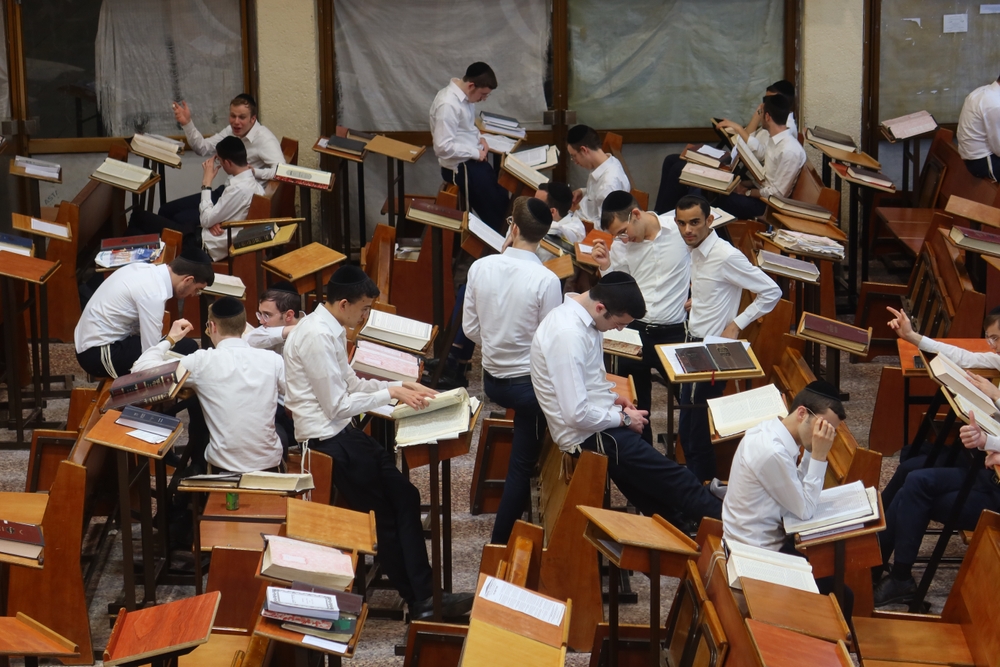In this week’s parsha, Vayeira, we find Avraham Avinu sitting by the entrance of his tent on a hot day. This was no ordinary day, mind you. This was just a few days after Avraham, in his old age, performed his own bris milah, circumcision. Undoubtedly, he must have been rather uncomfortable and still in the midst of his recovery process. However, this did not deter him from welcoming guests into his home and acting as a model for all future generations of hachnasas orchim, hosting and entertaining guests.
The Chofetz Chaim, in his work Ahavas Chesed, Loving Kindness (3:2), explains that the Torah seemingly goes out of its way to give details regarding Avraham Avinu’s level of commitment to hachnasas orchim. No detail in the Torah is extra– every jot and tittle has a specific placement and meaning, from which we can learn lessons for life.
Rabbi Avraham Yaakov Pam ztz”l, former Rosh Yeshiva of Torah Vodaas in Brooklyn, writes in his work Atarah L’Melech (pgs. 20-21) that the most impressive detail of the story of Avraham and his guests is the fact that he even saw them passing by. Avraham did not merely get a knock on his door from passersby; rather, according to Chizkuni (Bereishis 18:1), Avraham specifically sat outside of his tent in order to have a better vantage point to look for travelers that he could welcome into his home. What is amazing is the fact that not only was he creating an opportunity to help others, but that he was doing so just a few days after his circumcision!
The Chofetz Chaim also explains that hachnasas orchim, as emulated by Avraham Avinu, is not merely about inviting those people who present themselves to you into your home. Instead, hachnasas orchim is about actively seeking out and bringing in people from the outside. It is easy to help someone who is crying out in need. It is quite another task to anticipate someone else’s current need and extend them a helping hand. The paradigm that Avraham exemplifies for us is that hachnasas orchim is really just an extension of the important character trait of trying to be sensitive to the needs of others.
When the guests came into Avraham’s home, he did not take the opportunity to make the event about himself. He did not complain about his physical pain. Rather, he just concentrated on their needs by providing them with food and drink. Rabbi Chaim Palagi in his work Tochachas Chaim (Vayeira, d.h. Harei Lach) explains that hosts should not present their own issues but instead create a comfortable environment for their guests.
Rabbi Daniel Feldman, in his book Divine Footsteps: Chesed and the Jewish Soul (pg. 141), relates the following story about Rabbi Yisrael Salanter and his sensitivity towards the needs of others. One day, Rabbi Salanter went to visit a wealthy student in Kovno. Before they sat down to eat a meal, Rabbi Salanter ritually washed his hands with the minimal amount of water required for the mitzvah. Upon seeing this, his student inquired why he used just a bit of water when the gemara (Shabbos 62b) says that one should wash with a lot of water in order to make the mitzvah more praiseworthy. Rabbi Salanter responded that usually he would use more water but that he noticed that the servant in charge of bringing the water was an elderly woman. To get the water, she had to travel a bit of a distance. If Rabbi Salanter had used more water, it would cause an extra unnecessary burden upon the frail woman.
So too, Avraham offered his guests only a little water because, according to a gemara (Bava Metzia 86a), bringing water would also require a messenger to travel a distance. Not only was Avraham in tune with the unarticulated needs of his guests, but that of his servant as well.
It is easy to become complacent in our life situation. We find many excuses in life for not being more involved in helping others. If no one asks us to help, then we make no effort to look for an opportunity. And if we are personally undergoing a difficulty in our own life we may feel that we are exempt from being there for everyone else. Avraham Avinu teaches that it is at the exact moment of personal difficulty that we need to seek out ways to help those who might otherwise just pass us by. We need to train ourselves to anticipate the needs of others.
Perhaps by helping others we will realize that we are not helpless in our own life difficulty. Rather, we will realize that we have unbelievable inner strength and that we are never alone.
by Rabbi Mordechai Weissmann, Oorah volunteer


